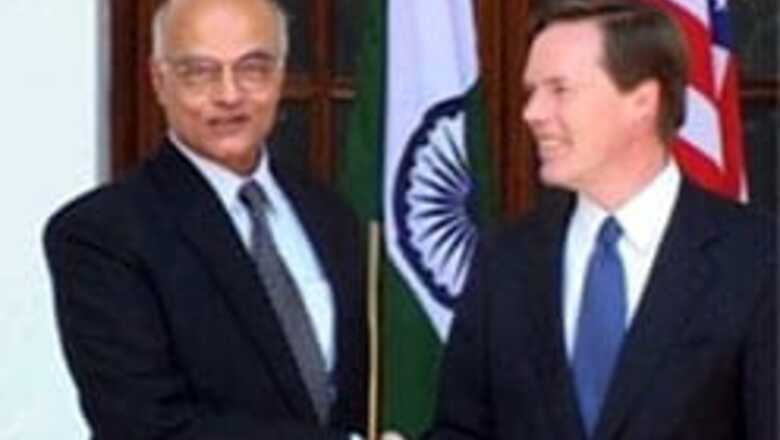
views
New Delhi: US Under Secretary of State Nicholas Burns on Wednesday said that a just-completed nuclear deal with India complies with US law, but lawmakers in US have warned Bush administration of 'inconsistencies' in the 123 agreement after reports that Washington has agreed to allow India to reprocess spent nuclear fuel under civilian nuclear deal with New Delhi.
In a letter to President George W Bush, as many as 23 Congressmen-led by Democratic lawmaker Edward Markey expressed their concern that perhaps Washington may have ‘capitulated’ to India's demands on the agreement.
“The Congress passed the Hyde Act less than a year ago, settling minimum conditions that must be met for nuclear cooperation with India, as well as the non-negotiable restrictions on such cooperation,” PTI quoted Markey as saying.
Stating that these conditions and restrictions were not optional or advisory, Markey warned, "If the 123 agreement has been intentionally negotiated to side-step or bypass the law and the will of Congress, final approval for this deal will be jeopardised."
In the letter, the lawmakers stressed that the necessity of abiding by the legal boundaries set by Congress for nuclear cooperation.
"The Agreement for Nuclear Cooperation is subject to the approval of Congress, and any inconsistencies between the Agreement and the relevant US laws will call congressional approval deeply into doubt," lawmakers told the White House.
"The President cannot re-write laws during a closed-door negotiation session with a foreign government. Though some of us disagreed during last year's debate over nuclear cooperation with India, all of us are intent on defending the prerogatives of Congress and reinforcing that the law must be followed without exceptions," Markey said in a statement.
They also picked upon India's growing economic and military ties to Iran as a factor, which could imperil congressional approval of the deal.
Among the bipartisan cosigners were Howard Berman (Senior member of the Foreign Affairs Committee), Brad Sherman (Chairman of the Terrorism, Nonproliferation, and Trade Subcommittee), Dan Burton (Senior member of the Foreign Affairs Committee), Ellen Tauscher (Chairwoman of the Strategic Forces Subcommittee), Jeff Fortenberry and Henry Waxman (Chairman of the Oversight and Government Reform Committee), and Republican Jane Harman (Chairwoman of the Intelligence Subcommittee).
However, the Congressional sources and other experts have said the agreement, reached last week, appears to go a long way toward meeting the demands of India's nuclear establishment, giving New Delhi rights only accorded to key US allies Japan and the European Union.
The Bush Administration has to get Congressional approval on the bilateral deal before any nuclear cooperation can commence between the US and India.
The remaining steps include India negotiating a safeguards agreement with the International Atomic Energy Agency, and the US obtaining consensus agreement from the Nuclear Suppliers Group to change its guidelines to allow transfers to India.
















Comments
0 comment